This article was co-authored by Laura Reber, SSP. Laura Reber is a school psychologist and founder of Progress Parade, an organization that provides 1:1 online tutoring with hand-picked specialists to students with academic needs, ADHD, learning disabilities, autism, and social-emotional challenges. Laura works with a team of school psychologists and specialized teachers to create personalized approaches for homework support, academic intervention, homeschooling, unschooling, and more. Laura holds a BS in Psychology from Truman State University and a Specialist in School Psychology degree (SSP) from Illinois State University.
There are 12 references cited in this article, which can be found at the bottom of the page.
This article has been viewed 129,795 times.
Learning disabilities are neurological-based problems that affect how the brain processes information, making it quite difficult or impossible to learn certain skills, i.e., reading, writing, arithmetic. While many people are diagnosed during their childhood and begin to receive therapy while attending school, a great deal of others, unfortunately, slip through the cracks and are never diagnosed. This guide will help you determine if either you or your child have a learning disability (LD). It will also provide information on the screening and diagnostic process.[1]
Steps
Recognizing the Symptoms of a Learning Disorder
-
1Understand that there are many types of learning disabilities. Each of these disabilities affects an individual in different ways and can produce different types of symptoms. LDs can affect the way the brain processes audio, visual, or speech-related information or stimuli.
- LDs are the result of neurological-based problems that affect the way that the brain receives, processes, stores, and responds to information: the brain's cognitive functioning.
- LDs are not curable, they are lifelong. But, they can be managed with the proper help.
-
2Know the most common LDs. One in every five Americans is diagnosed with a LD. Unfortunately, because each LD affects the cognitive area of the brain, symptoms tend to over-lap, making it quite difficult for even the trained professional to identify. For example, poor-handwriting skills can be the result of difficulties processing symbols (dyslexia); or from poor spatial organization skills (dysgraphia). The most common LDs are:[2]
- Dyslexia is a reading disability that affects how one interprets sounds, letters and words. It can affect general vocabulary skills as well as one's reading speed and efficiency. Symptoms of dyslexia include late speech, difficulty with handwriting, and difficulty rhyming words.
- Dyscalculia affects an individual's ability to process numbers, and can manifest itself as a problem with memorization skills, as well as a difficulty sequencing patterns or numbers. Symptoms of dyscalculia include difficulty counting and memorizing arithmetic concepts.
- Dysgraphia is a LD of writing, and can be the result of either a physical motor in-efficiency, or a mental difficulty in understanding and processing certain forms of information. Individuals with dysgraphia tend to demonstrate poor handwriting skills, illegible and/or irregular writing, and have difficulties communicating through the written form.
Advertisement -
3Familiarize yourself with the general symptoms of a learning disability. Although each LD affects the brain in a different way, there are, however, general symptoms that can help indicate whether-or-not an individual has a disability of either the audio, visual, or speech type. These symptoms include:
- Trouble spelling.
- Avoidance of reading and writing.
- Difficulty summarizing.
- Trouble with open-ended questions.
- Poor memory.
- Difficulty with abstract concepts.
- Trouble expressing ideas.
- Mispronunciation.
- Easily distracted.
- Mix up right/left or poor sense of direction.
- Trouble following directions or completing tasks.[3]
-
4Observe daily patterns and routines. Take well-detailed notes if necessary, and look for the most obvious symptoms of a LD--poor memorization, bad social skills, frustration with reading and/or writing.
- Do you or your child perform daily tasks in a different way each time? This can be an indicator of a LD.
- Do this over an extended period of time.
-
5Consider the alternative causes. These symptoms may not necessarily be the result of an LD, but may be caused by other conditions affecting you or your child. In many cases, individuals demonstrate the symptoms of a LD but do not actually have any disorder. Instead, these individuals are being affected by social, financial, personal, or general living conditions that make it difficult to learn or remain focused.[4]
- These "learning problems" are not considered disorders.
- It is very difficult to distinguish between learning disorders and learning problems.
-
6Take a quiz. If you do not believe that the symptoms are being caused by any outside or social conditions, then the next step is to take a quiz or questionnaire. Many are available online. These tests will help you assess whether-or-not you should seek any further screening.
-
7Understand that having a LD does not mean that a person is in any way unintelligent or incapable. On the contrary, individuals with LDs typically demonstrate an average to above average intelligence.[5] Charles Schwab and Whoopi Goldberg have been diagnosed with LDs, and many suspect that Albert Einstein may have had one as well.
- Celebrities Tom Cruise, Danny Glover and Jay Leno all have dyslexia, and have actively campaigned to raise awareness for the disability.
- Historians and researchers suspect that these historical figures may have also had some form of learning disability: George Patton, Walt Disney, Leonardo da Vinci, Thomas Jefferson and Napoleon Bonaparte.
Obtaining a Professional Diagnosis (adult)
-
1Consult your personal medical physician. If you demonstrate symptoms or suspect that you may have a LD, the first step toward seeking help is to contact your personal doctor. Your physician will discuss your options with you, and more specifically, look for any further symptoms. If necessary, your physician can point you in the proper direction for further screening.
- This is not a diagnosis, but rather, only the first step of several that are required to be properly diagnosed.
- Being properly diagnosed includes initial consultation, screening, and then final diagnosis.
-
2Get screened for a LD. Screening is an informal process that takes place between you and a LD advocate. After you have been screened, your advocate will inform you whether-or-not you should pursue further diagnosis.[6]
- Screening is relatively inexpensive.
- It consists of observation, an interview, and brief testing.
- Mental health clinics and state rehabilitation agencies can provide initial consultation.
- Mental health clinics and local universities oftentimes provide assessments that are priced on a sliding scale.
-
3Be formally evaluated by a qualified professional. This does not necessarily mean your medical physician--most general practitioners are not licensed to diagnose LDs--but instead, a clinical or neurological psychologist.[7]
- After your advocate is finished evaluating all of the information, you will need to meet with him or her again in order to discuss the results.
-
4Return for consultation. During this meeting your advocate will diagnose and provide you with a written report that details your specific LD. This report will provide learning specialists with the information that they need to provide you with any further help.
- This report can also be used to make a request for special accommodations at school or work.
-
5Ask questions. When you return to discuss the results of your evaluation, be sure to ask your advocate about anything that is unclear to you. [8]
- Are there any terms that you do not understand?
- Are you unclear as to what to do next? Or what your advocate expects?
Obtaining a Professional Diagnosis for Your Child
-
1Contact your son or daughter's teacher. Let them know about your concerns. The teacher, or another professional, will begin collecting information about your child's scholastic performance.[9]
- Once enough information has been collected, the teacher or learning specialist will provide your son or daughter with a series of learning strategies or supplemental learning activities.
- A school cannot collect information about your son or daughter without your written consent.
-
2Review the learning strategies and activities provided by your learning specialist. Make sure that your son or daughter's weaknesses are actually being addressed in the supplemental learning plan that has been provided by the specialist.
- Do the expectations of the learning plan accurately address your son or daughter's needs?
-
3Follow the routine provided by your learning specialist. These routines are designed to help your son or daughter become a more-effective student. Furthermore, this routine will help learning specialist more accurately diagnose a specific type or kind of LD. Like any exercise, however, these activities will only work if they are followed exactly as planned.[10]
- Take action to implement these changes as quickly as possible, like getting a tutor for your child or trying different learning strategies. If your student gets targeted help, they may be able to overcome whatever they're struggling with.[11]
- You can try these strategies without having a formal diagnosis. In fact, in some cases, having a diagnosis of a disorder or disability can make it harder for a student to overcome their learning difficulties, so if you can intervene, it may be better in the long-term.[12]
-
4Seek formal evaluation if your child is still struggling. If you're providing your child with one-on-one support to help them succeed in school, but they're still struggling after a whole school year, they may need additional help and resources in order to do well. In that case, you should have your son or daughter formally evaluated.[13]
- Your son or daughter's teacher will be able to provide you with more information regarding the process.
- The "Individuals with Disabilities Education Act" ensures free-screening for your child. Formal screening will include a series of tests and interviews, and the committee may suggest special education.
-
5Obtain an "Individualized Education Program." After the committee has finished evaluating all of the information, you will meet with them to create an "Individualized Education Program" for your son or daughter. This program will outline the learning objectives for your child, and will also provide you with information regarding the services that your school or school district offers.[14]
- You have the right to be part of this process!
- If you have specific learning goals for your child, they should be discussed at the post-evaluation meeting.
-
6Follow the "Individualized Education Program." Depending on the specific learning goals and LD, it may take quite some time to see any significant improvement from your child.
- The "Individualized Education Program" may have a timeline of development. This is only a guide, not an exact rule.
-
7Contact the school district if you believe that the program is not working. You have the right to have your son or daughter re-evaluated if the "Individualized Education Program" that you received is not producing significant results.[15]
- LDs are very difficult to diagnose, which means that re-evaluations are not uncommon.
- Because symptoms tend to over-lap, even highly trained experts can misdiagnose a specific type or kind of LD.
Expert Q&A
-
QuestionCan adults develop learning disabilities?
 Laura Reber, SSPLaura Reber is a school psychologist and founder of Progress Parade, an organization that provides 1:1 online tutoring with hand-picked specialists to students with academic needs, ADHD, learning disabilities, autism, and social-emotional challenges. Laura works with a team of school psychologists and specialized teachers to create personalized approaches for homework support, academic intervention, homeschooling, unschooling, and more. Laura holds a BS in Psychology from Truman State University and a Specialist in School Psychology degree (SSP) from Illinois State University.
Laura Reber, SSPLaura Reber is a school psychologist and founder of Progress Parade, an organization that provides 1:1 online tutoring with hand-picked specialists to students with academic needs, ADHD, learning disabilities, autism, and social-emotional challenges. Laura works with a team of school psychologists and specialized teachers to create personalized approaches for homework support, academic intervention, homeschooling, unschooling, and more. Laura holds a BS in Psychology from Truman State University and a Specialist in School Psychology degree (SSP) from Illinois State University.
School Psychologist Sure, although many learning disabilities are noticeable when you're young. If you suspect that you or someone you know has a learning disability, it may have simply just gone undiagnosed when they were young. We've gotten a lot better at identifying the early signs of certain disabilities, but it wasn't always that way!
Sure, although many learning disabilities are noticeable when you're young. If you suspect that you or someone you know has a learning disability, it may have simply just gone undiagnosed when they were young. We've gotten a lot better at identifying the early signs of certain disabilities, but it wasn't always that way! -
QuestionWhat should I do if I think my child might have a learning disability?
 Laura Reber, SSPLaura Reber is a school psychologist and founder of Progress Parade, an organization that provides 1:1 online tutoring with hand-picked specialists to students with academic needs, ADHD, learning disabilities, autism, and social-emotional challenges. Laura works with a team of school psychologists and specialized teachers to create personalized approaches for homework support, academic intervention, homeschooling, unschooling, and more. Laura holds a BS in Psychology from Truman State University and a Specialist in School Psychology degree (SSP) from Illinois State University.
Laura Reber, SSPLaura Reber is a school psychologist and founder of Progress Parade, an organization that provides 1:1 online tutoring with hand-picked specialists to students with academic needs, ADHD, learning disabilities, autism, and social-emotional challenges. Laura works with a team of school psychologists and specialized teachers to create personalized approaches for homework support, academic intervention, homeschooling, unschooling, and more. Laura holds a BS in Psychology from Truman State University and a Specialist in School Psychology degree (SSP) from Illinois State University.
School Psychologist Get targeted help to support your child's learning as soon as possible, like one-on-one instruction. In many cases, kids who fall behind in school just need extra practice or instruction to get caught up. If that works, you don't need to do anything else. However, if it doesn't, it's a good idea to have a professional evaluation done.
Get targeted help to support your child's learning as soon as possible, like one-on-one instruction. In many cases, kids who fall behind in school just need extra practice or instruction to get caught up. If that works, you don't need to do anything else. However, if it doesn't, it's a good idea to have a professional evaluation done.
References
- ↑ https://www.nhs.uk/conditions/learning-disabilities/
- ↑ https://www.waldenu.edu/online-masters-programs/ms-in-psychology/resource/seven-learning-disabilities-every-psychology-professional-should-study
- ↑ https://www.understood.org/en/family/taking-care-of-yourself/do-i-have-learning-attention-issue/checklist-the-signs-of-learning-and-attention-issues-in-adults
- ↑ http://ldaamerica.org/types-of-learning-disabilities/
- ↑ http://www.helpguide.org/articles/learning-disabilities/learning-disabilities-and-disorders.htm
- ↑ http://ldaamerica.org/screening-adults-for-learning-disabilities/
- ↑ http://www.ldonline.org/article/6021/
- ↑ http://www.ldonline.org/article/6021/
- ↑ https://raisingchildren.net.au/school-age/school-learning/learning-difficulties/learning-disabilities-signs-and-support
- ↑ https://raisingchildren.net.au/school-age/school-learning/learning-difficulties/learning-disabilities-signs-and-support
- ↑ Laura Reber, SSP. School Psychologist. Expert Interview. 15 May 2020.
- ↑ Laura Reber, SSP. School Psychologist. Expert Interview. 15 May 2020.
- ↑ Laura Reber, SSP. School Psychologist. Expert Interview. 15 May 2020.
- ↑ https://www.understood.org/en/articles/understanding-individualized-education-programs
- ↑ https://kidshealth.org/en/parents/iep.html
- ↑ https://journals.sagepub.com/doi/10.1177/0022219412464351
About This Article
To figure out if you or your child have a learning disability, like dyslexia or dysgraphia, first look for the most common symptoms, like difficulty spelling or reading, losing focus easily, or having trouble remembering things. If you experience any of these symptoms, schedule an appointment with your primary care physician to get screened for a disability. On the other hand, if your child shows symptoms, contact their school to set up a formal evaluation. For more tips on how to know if you or your child have a learning disability, including what to do after the diagnosis, read on!


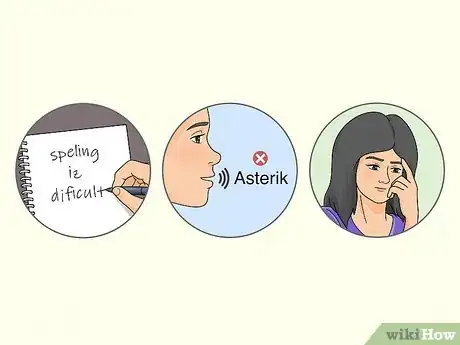

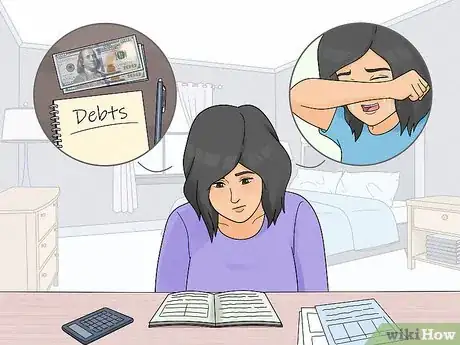


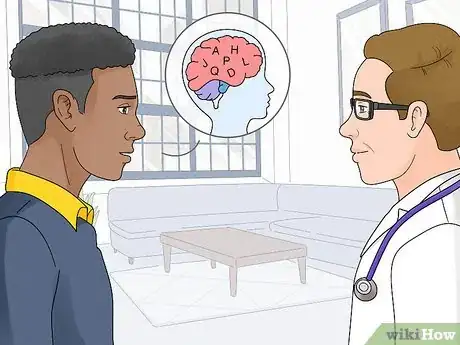






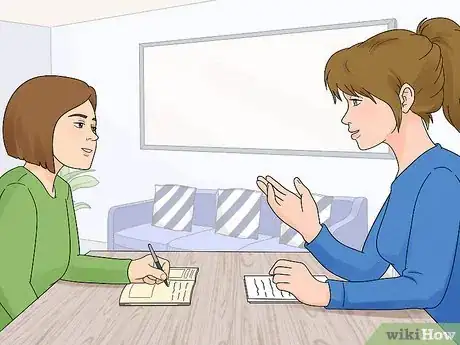


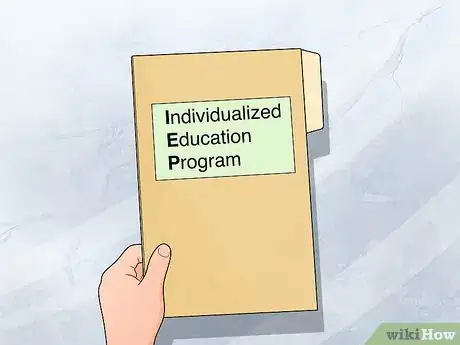
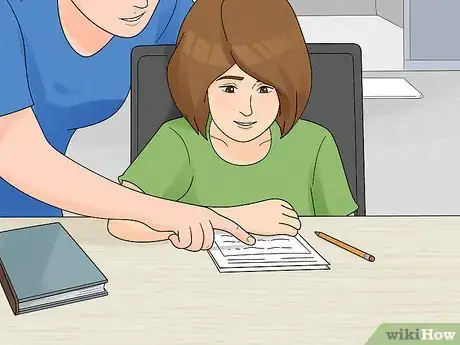
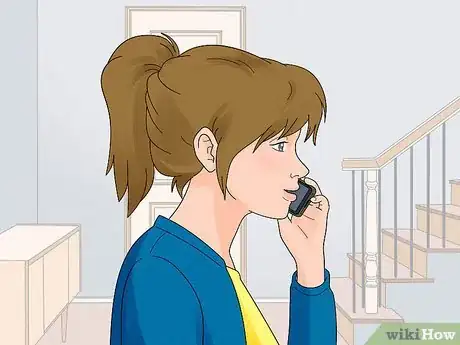
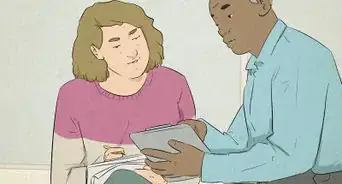
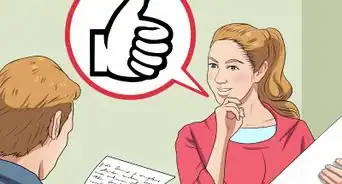
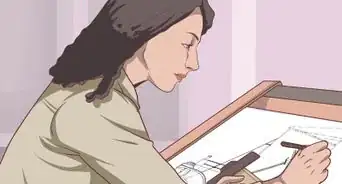
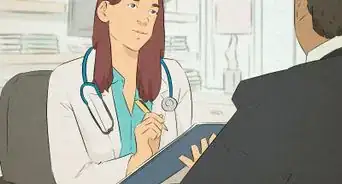
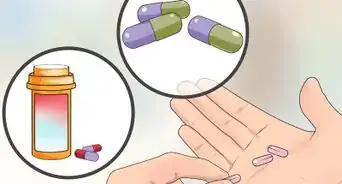
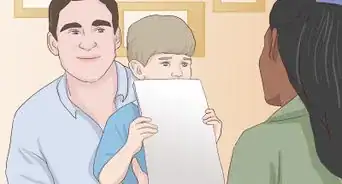
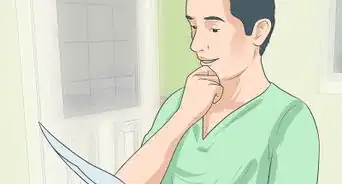
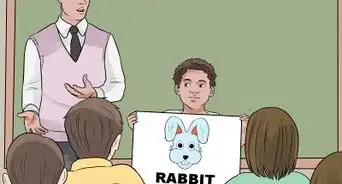








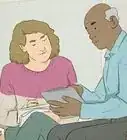


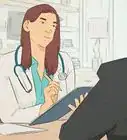



































Medical Disclaimer
The content of this article is not intended to be a substitute for professional medical advice, examination, diagnosis, or treatment. You should always contact your doctor or other qualified healthcare professional before starting, changing, or stopping any kind of health treatment.
Read More...